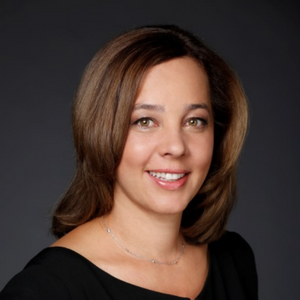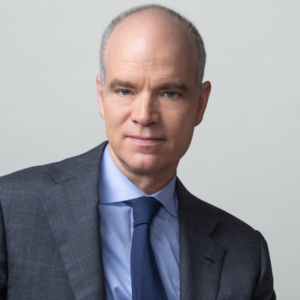January 31, 2023 | Registration
Registration now open for 24th ISOJ, a hybrid, global conference on online journalism
 The Knight Center for Journalism in the Americas has opened registration for the 24th International Symposium on Online Journalism (ISOJ), which is taking place on April 14 and 15, 2023, at the University of Texas at Austin.
The Knight Center for Journalism in the Americas has opened registration for the 24th International Symposium on Online Journalism (ISOJ), which is taking place on April 14 and 15, 2023, at the University of Texas at Austin.
Each year, ISOJ convenes journalists, media executives, and journalism professors and students from around the world to discuss the present and future of online journalism.
This intimate conference allows attendees to participate either virtually via video or in-person at the UT Austin campus. Register now!
“We have already confirmed the participation of an impressive lineup of dozens of speakers from a variety of media outlets and universities from the United States and other countries to discuss some of the most pressing issues facing journalists in these times of rapid changes in the digital media ecosystem,” said Professor Rosental Alves, who has organized ISOJ annually since 1999. “We did it again! It will be a fantastic conference, worth the small investment in time and money the attendees will make to participate.”
Thanks to Knight Foundation, our main sponsor, registration fees for ISOJ are much less than comparable conferences. Those who choose to attend in person at UT Austin’s Zlotnik Family Ballroom will pay just US$250 for general admission, or discounted rates of US$150 for faculty and UT staff, and US$75 for students. The in-person fee includes access to all activities, like workshops and seminars, and lunch and breakfast on both days.
Registration for virtual participation is only US$25 and will include access to live streaming of the sessions, links to the recordings that will be open to the general public three months later, and other innovative ways to engage with speakers and attendees, as well.

ISOJ 2023 will feature keynote speakers, including: Joseph Kahn, executive editor at The New York Times; Janelle Rodriguez, executive vice president, NBC News; Jon Kelly, co-founder and editor-in-chief of Puck; and Sumaiya Omar and Yusuf Omar, founders and leaders of Seen.tv (based in Australia and several other countries).
The symposium will also feature panels on topics such as artificial intelligence, especially generative AI, like ChatGPT; philanthropic investments to create a new local news ecosystem in the U.S.; the evolution of opinion journalism; how to improve coverage of the climate crisis; how to reduce the dependency of social media in off-platform engagement; how to deal with news avoidance, attacks on journalists, the weaponization of fake news. And much more.
A preliminary list of speakers is now available and more will be added soon. The full program will be published shortly.
Among the workshops and seminars that occur the day before or during ISOJ, we will offer one on “How to operationalize mental health and wellbeing in the newsroom,” taught by investigative journalist Mar Cabra. She is a co-founder and instructor at The Self-Investigation, an organization that provides training and consulting on initiatives to improve media professionals’ well-being.

Research is also an important part of ISOJ. During this year’s conference, we will launch Volume 13 of the #ISOJ Journal. Authors whose papers were selected for the journal through a peer-reviewed process will present their original research on online journalism at the symposium.
In addition to keynote speakers and panel discussions, ISOJ features breakfast sessions and lunch workshops. Registration will open to attendees shortly.
As per tradition, ISOJ will be held in English with simultaneous interpretation to Spanish, allowing for greater participation from journalists around the globe.
And don’t forget to mark your calendars for the 16th Ibero American Colloquium on Digital Journalism, which will take place at UT Austin’s Moody College of Communication on April 16. This meeting for ISOJ participants from Latin America, Portugal and Spain traditionally takes place the day after ISOJ. Registration will open soon.
Check isoj.org and social media for updates. You can follow us on Twitter and Facebook, and by following #ISOJ2023 on all platforms.
You can also view video, presentations and news from all symposia from 1999 to present through our digital archive.
We can’t wait to see you, whether in person or online! Register now!
SPEAKERS
This is a preliminary list. Names will be added in the coming days.
- Joseph Kahn, executive editor, The New York Times
- Janelle Rodriguez, executive vice president, NBC News
- Jon Kelly, co-founder and editor-in-chief, Puck
- Yusuf Omar, co-founder, Seen.tv (Australia)
- Sumaiya Omar, co-founder, Seen.tv (Australia)
- Fahim Abed, independent journalist/former NY Times reporter in Kabul (Afghanistan)
- Bill Adair, founder, PolitiFact, and Knight Professor, Duke University
- Adefmi Akinsanya, correspondent and anchor, Arise News (Nigeria)
- Sheikh Sabiha Alam, senior reporter, Prothom Alo (Bangladesh)
- Rosental Calmon Alves, ISOJ founder and chair, professor, School of Journalism and Media
- Nancy Ancrum, editorial page editor, Miami Herald
- Manuela Andreoni, climate reporter, The New York Times (Brazil)
- Jay Bernhardt, dean, Moody College of Communication at UT Austin
- Michael Bolden, CEO and executive director, American Press Institute
- Jim Brady, vice president, journalism, Knight Foundation
- Carrie Brown, director of engagement journalism and associate professor, Craig Newmark Graduate School of Journalism, CUNY
- LaSharah S. Bunting, CEO and executive director, Online News Association
- Mar Cabra, co-founder, The Self-Investigation
- Carlos Fernando Chamorro, founder and editor, Confidencial (Nicaragua)
- Sewell Chan, editor-in-chief, The Texas Tribune
- Olga Churakova, independent journalist and podcast host, “Hi, You’re a Foreign Agent” (Russia)
- David Cohn, chief strategy officer and co-founder, Subtext at Advance Publications
- James Dao, editorial page editor, The Boston Globe
- Sérgio Dávila, editor-in-chief, Folha de S.Paulo (Brazil)
- Darryl Fears, environmental justice reporter, The Washington Post
- Danny Fenster, editor-at-large, Frontier Myanmar (Myanmar)
- Sara Fischer, media reporter and author of Media Trends newsletter, Axios
- Juan Luis Font, journalist and radio host, ConCriterio (Guatemala)
- Jeremy Gilbert, Knight chair in digital media strategy, Northwestern University
- Celeste de González Bustamente, professor and associate dean, Moody College of Communication, UT Austin
- Sam Han, director, AI/ML and Zeus Technology, The Washington Post
- Alfred Hermida, professor, School of Journalism, Writing, and Media, University of British Columbia (Canada)
- Robert Hernandez, professor of professional practice, School for Communication and Journalism, USC Annenberg
- Khaya Himmelman, reporter, Grid
- Glenn Kessler, editor and chief writer, The Washington Post’s Fact Checker
- Zeba Khan, deputy editorial page editor, The San Francisco Chronicle
- Kathleen Kingsbury, opinion editor, The New York Times
- Marc Lavallee, director, technology, product and strategy/journalism, Knight Foundation
- Ann Marie Lipinski, curator, Nieman Foundation for Journalism at Harvard University
- Vernon Loeb, executive editor, Inside Climate News
- Kathleen McElroy, professor, School of Journalism and Media, UT Austin
- Erin Millar, co-founder and CEO, Indiegraf (Canada)
- Coleen O’Lear, head of curation and platforms, The Washington Post
- Michael Ouimette, SVP, strategy & startups, The American Journalism Project
- Bopha Phorn, independent journalist based in Phnom Penh (Cambodia)
- Aimee Rinehart, program manager, Local News & AI, The Associated Press
- Sue Robinson, professor, School of Journalism & Mass Communication, University of Wisconsin-Madison
- Alana Rocha, Rural News Network editor, Institute for Nonprofit News
- David Ryfe, professor and director, School of Journalism and Media, UT Austin
- Anya Schiffrin, director, technology and media specialization, Columbia University
- Amy Schmitz Weiss, professor, San Diego State University, and ISOJ research chair
- John Schwartz, professor of practice, School of Journalism and Media, UT Austin
- Zainab Shah, director of engagement and audience, THE CITY
- Dmitry Shishkin, independent media consultant (UK)
- Evan Smith, co-founder and senior advisor, The Texas Tribune, and senior advisor, Emerson Collective
- Talia Stroud, founder and director, Center for Media Engagement, UT Austin
- Cristina Tardáguila, senior program director, International Center for Journalists (ICFJ)
- Mallary Tenore, associate director, Knight Center for Journalism in the Americas
- Ben Toff, senior research fellow, Reuters Institute (UK)
- Mary Walter-Brown, CEO and founder, News Revenue Hub
- Sisi Wei, editor-in-chief, The Markup
- José Zamora, chief communications and impact officer, Exile Content (Guatemala)

